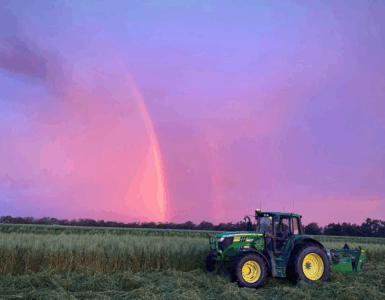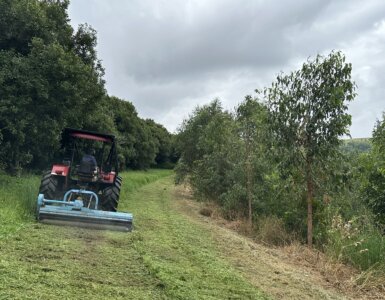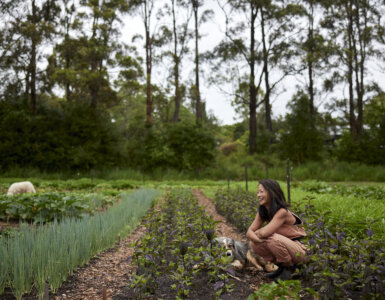I’ve worked on large scale cattle properties my whole life. From starting out at the age of 13, I made my way up through the ranks to my current role here as General Manager Cattle Stations, living in Katherine, NT, managing over 5.5 million hectares, 120 people and 300k head of cattle for Consolidated Pastoral Company (CPC).
Our cattle properties span across Queensland, the Northern Territory and Western Australia and we also indirectly employ services that translate to jobs for a further 10,000 people along the supply chain.
What do I like most about my work? For starters; the remoteness, working with animals and the environment. I also like working with a team of people who thrive to be effective in their roles and mentoring the young men and women who come to the northern stations to give this lifestyle a crack for a year or so.
On a personal level, I really appreciate the fact that my work has allowed me to have my feet under the table (most nights) with my family.
There are a lot of moving parts to this business and the key to bringing them all together, is strong, reliable teams of people.
Five and a half million hectares is a lot of land with varied needs and challenges. So successfully managing these huge properties all comes down to big efforts by small teams of highly skilled people.
The challenge for me and this industry, is connecting and keeping these teams together and engaged for longer periods.
Another challenge is staff retention. We get lots of younger people coming to the bush to try out this lifestyle, and engaging and identifying the ones who want to stay on is vital.
In terms of sustainable practises, I reckon Australia has the best farmers/land managers in the world.
Just look at how we’ve managed these past 10 years, how we have adapted and managed through drought to flood, bushfires to pandemics. We brush ourselves off, learn from the last experience and get ready for the next challenge.
Most years, CPC alone turns off roughly 25 million kilograms of meat from our herd of three hundred thousand head of cattle (consisting of a mix of commercial breeding cows, stud cattle, trading and feedlot cattle).
Or in other words, you could say we provide beef for around 100,000,000 meals per year.
Of course, living in north Australia, brings it’s own unique set of challenges. Crocodiles for example are part of life up this way!
All our stations up north are infested with crocodiles so fencing in floodplains/river crossings can be pretty dangerous.
They can appear seemingly out of nowhere if you aren’t careful! It’s a matter of being totally aware at all times that someone is watching and waiting to pounce. We get around in buggies, small boats or wait until the water gets to a safe level (ankle deep).
Just recently a crew came in and asked if they should report an OH&S incident that had happened that day; they were fencing along floodplain banks and a crocodile came up out of the mud where he’d been hiding.
They were only a metre or so away from him, so in self-defence they resorted to using a star picket that they in hand to fend it away.
As always, the focus must be safety first! We enjoy what we do, make the best of experiences offered and always look out for each other’s health and wellbeing.
What matters to me most is family, community and animal welfare.
And playing my part in this profitable sustainable industry that continues to build communities and employs lots of people.
Our remoteness is our best defence against COVID-19 and we mobilised quickly to ensure visitors were only permitted on station for essential purposes and that best-practice isolation and hygiene practices were strictly adhered to.
The cattle industry was the lifeblood of northern Australia.
To keep people working and to keep supplying beef to Australia and the world it was paramount we protected our workforce from the virus.
I know that it’s been a tough year for many, but I hope that other Australians know that we are still here, working hard to get things back on track.
I think we should all be very optimistic about the state and future of Australian agriculture because of the incredibly skilled, dedicated, smart and hardworking people who have made this industry their life and livelihood.












































Informative post. Thanks!